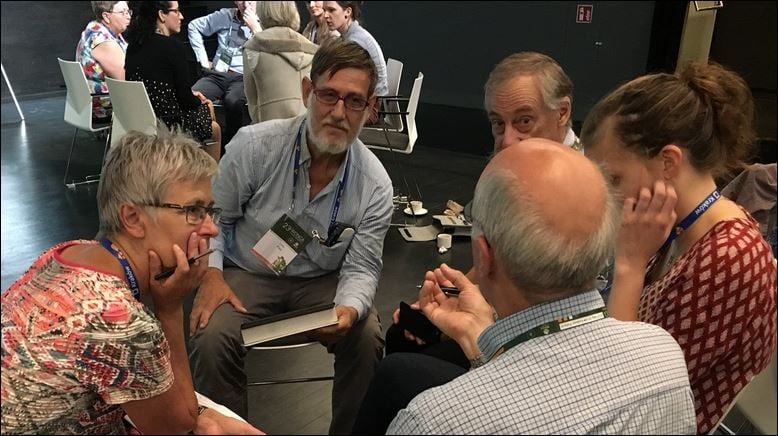SIG Family Violence workshop report.

Child exposure to intimate partner abuse: how can Family Doctors help? – Workshop
Authors & organizational team: Nina Monteiro, Raquel Goméz-Bravo, Kirsty Duncan, Hagit Dascal-Weichhendler, Maria João Nobre, Elena Klusova, Leo Pas
During the 23rd WONCA Europe Conference held in Krakow in May 2018, the Vasco da Gama movement (VdGM) Family Violence Group presented a workshop in collaboration with the WONCA SIG on Family Violence, focusing on Intimate Partner Violence (IPV) and its impact on exposed children.
IPV is a major public health problem and has significant impacts on the children in the family, and is now recognized as a form of child abuse. Recent research indicates that in 30 to 60 percent of families where IPV takes place, child maltreatment also occurs. Children not directly maltreated may still experience harmful consequences, as witnessing violence can be as damaging as experiencing it themselves directly. Selected studies have shown that children from violent homes have some of the same behavioral and psychological problems as physically abused children. Moreover, children who witness IPV are more likely to be either perpetrators or victims of IPV later in life.
During the workshop we discussed some lessons learned by the Adverse Childhood Experiences Study, which found that adverse childhood experiences (which include among others both child abuse and child exposure to IPV) have been linked to risky health behaviours, chronic health conditions, low life potential, and early death. As the number of ACEs increases, so does the risk for these outcomes. The mechanisms involved may include disrupted neurodevelopment, social/emotional/cognitive impairment, and adoption of health risk behaviours among others.
During the small group discussions different case scenarios were used and participants were asked to share their concerns, differential diagnosis, ideas on how to proceed with the case and the challenges surrounding it. We were surprised by the fact that many colleagues had only considered organic problems, overlooking possible abuse/neglect or witnessing abuse. Family Doctors should approach this subject comprehensively, understanding how children are affected by maltreatment and family violence. Identifying and assessing risk and protective factors, including the social determinants of health, is a key procedure to achieve positive outcomes from interventions in these cases. Once the suspicion arises, other professionals/organizations should be involved, e.g. social services and law enforcement.
Some take-home messages from the workshop:
- Adverse childhood events, such as witnessing violence can have both immediate and long-term effects in childhood, adolescence and adulthood.
- Besides health effects, there can be negative effects on a child’s cognitive and academic functioning, which may result in limited opportunities in adult life.
- By early diagnosis and intervention, it is possible to break the cycle of violence and prevent a bigger burden and repeated victimization.
- IPV may coexist with physical child abuse, and a high index of suspicion should be maintained. For example, shaken baby syndrome should be considered as a possible diagnosis in a case of a crying baby, or a baby with altered consciousness.
Family Doctors in frequent contact with both parents and children, and with knowledge of family interactions, are well placed to identify and help break the cycle of violence. Early identification and intervention can make a significant difference and save lives!
www.cdc.gov/violenceprevention/acestudy/index.html
email SIG on family violence convenor